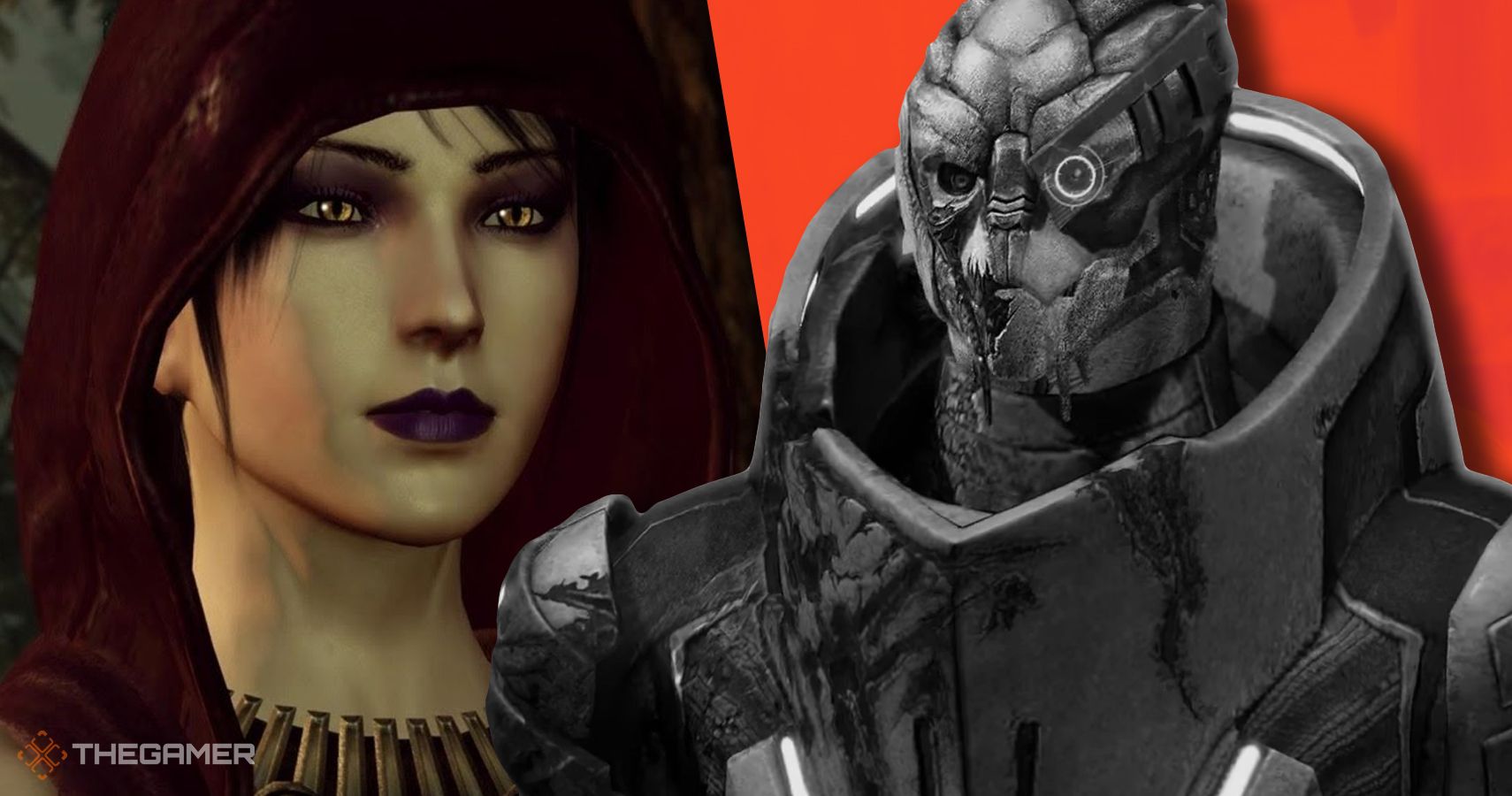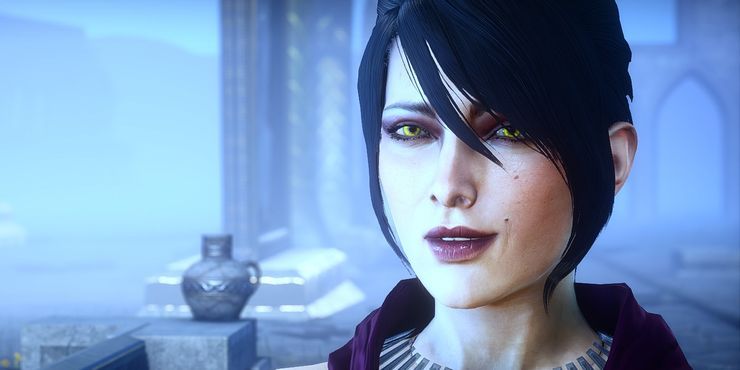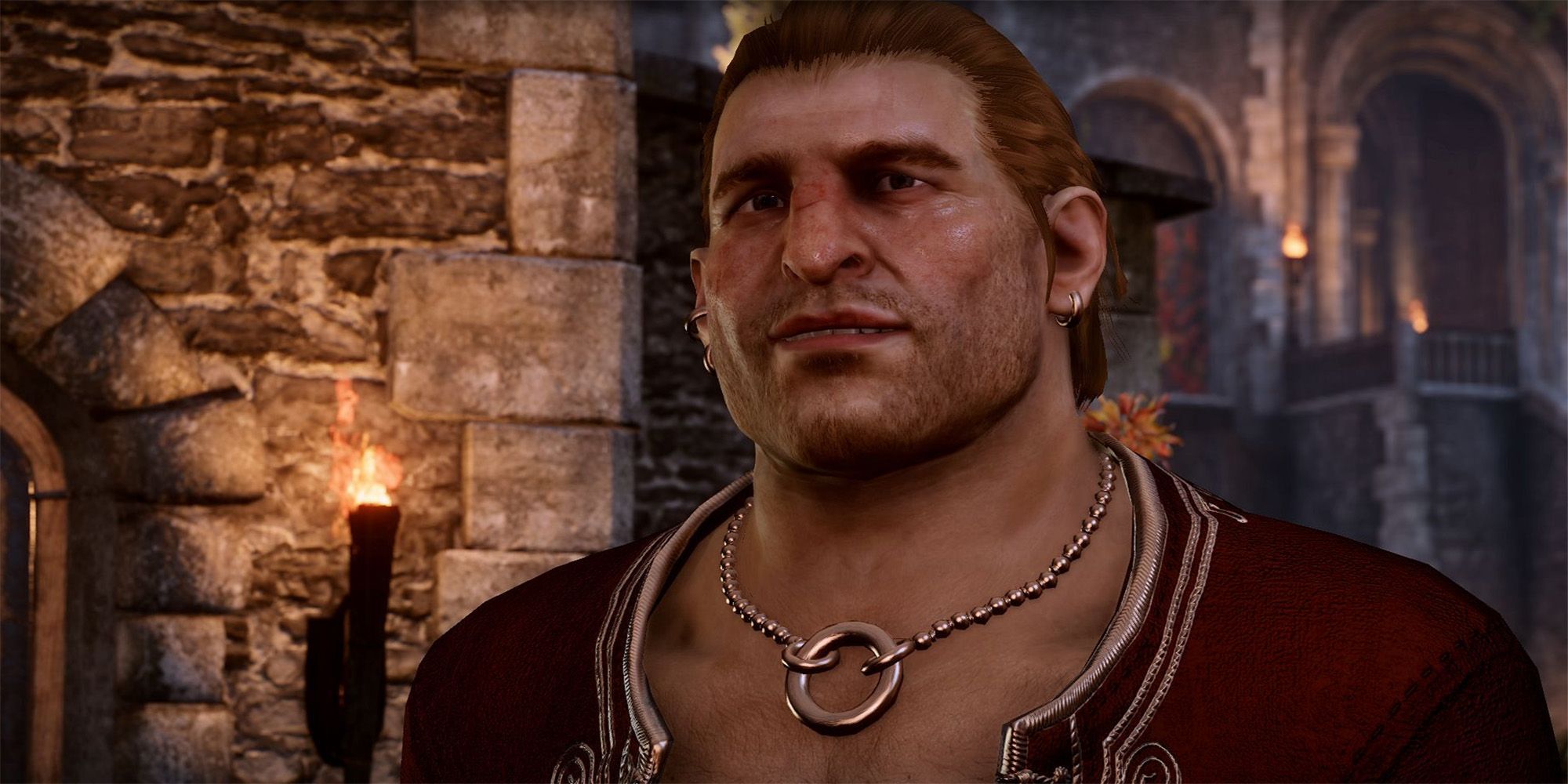I love BioWare games, to the extent that I’ve spent several hundred hours of my life exploring the radically different landscapes of the Milky Way and… spacescapes(?) of Thedas. Hold on a minute, that’s not right… Do the qunari have four balls? Or is that the krogan? Anyway, my point is this: Mass Effect has much more compelling characters than Dragon Age, although it is completely incapable of using them nearly as well as its weird, estranged fantasy sibling.
When people talk about Mass Effect’s bad characters, they usually just point to space racist Ashley Williams, which is fair - she’s a space racist - and Mass Effect 2’s Jacob Taylor, which is not fair because Jacob is actually brilliant. Even DLC characters like Kasumi Goto are all-time greats in the wider sphere of modern RPGs, while squadmates like Garrus and Tali are so popular that all of you got well annoyed at us when we said you should let them kiss each other. Meanwhile, Dragon Age has Anders, Oghren, Blackwall, Sera… I mean, loads of you hate Cole too - I was once on a podcast about why he’s actually great - and very few people have the same top three companions on account of there being precious few standouts other than Dorian, Morrigan, Varric, and Isabela (probably not your standouts, are they…)
The thing is, while Mass Effect’s characters are all brilliantly distinct and loveable, the dynamics that define them are a bit… uninspired, at least when compared to Dragon Age. Dragon Age is steeped in betrayal, disapproval, snark, and intrigue. You can be best buds with someone one second and the next they’re all like, “You hate the Tevinter Imperium? Off with your head!” That’s a little overdramatic, but you know what I mean. Every decision you make in Dragon Age doesn’t just have consequences on whether or not you get a war asset. People will leave forever, friends will turn on you, rivals will spin around and say, “Hey, you’re alright, actually.” It’s one great big wheel of influence, its omni-directional spokes prodding every single character in the game with each fraction of a revolution. As a result, you start playing favourites as well as making your own personal decisions - I might want to spare this person, right, but what if Morrigan hates me then? Damn it! Fine, you win *Winter’s Grasp*. I feel so guilty.
Speaking of which, Mass Effect 2 is probably the most guilty game on trial here. It’s an incredible game, but all you have to do is complete one individual mission for every character and boom! They love you and won’t die. People bang on about the suicide mission all the time, but as I’ve argued before, it’s just a decent Dragon Age quest in space. What’s special about Mass Effect 2 is actually acquiring characters and getting to know them, but the lack of risk or consequence gives it a much more inherent sense of safety than anything in Dragon Age. I went back to replay Dragon Age Origins for the first time in a decade last month, right, and had been meddling with Mass Effect in anticipation of Legendary Edition beforehand. I felt so secure, then all of a sudden Zevran whips out his akimbo daggers and is all like, “Sorry Warden, I’m a Crow ‘til the day I die - sleep tight, wanker!” Zevran, one of my favourite characters, who I didn’t bother speaking to enough because I was all Mass Effected up and thought “sure he’ll be grand.” No, he won’t be “grand.” If you don’t give Zevran enough attention - attention that he likes, mind - he will literally slit your throat. Garrus Vakarian could never.
Mass Effect’s characters are definitely three-dimensional, I’ll give them that. There’s some kind of weird, intangible fourth dimension with Dragon Age companions, though. They’re similar in some ways - you meet them, you help them, they help you, you can maybe ask them if they want to be your boyfriend or girlfriend. But there’s so much more to their actual function thanks to the use of approval, whether they’re in the party or not, and the fact that the individual disparities derived from said approval pit them not just against you, but against each other, too. Sure, Mass Effect 2 has the Jack/Miranda and Tali/Legion fights - and was supposed to have another one for Grunt and Mordin - but this just requires high Paragon or Renegade based on your own personal actions. Morrigan is great, but wow is her moral compass completely broken. North is south and west is protruding out of the centre of the compass face and saying “directions don’t actually exist, idiot.”
Varric, meanwhile, is a man who’s always on my side - that tells you everything you need to know about how I play BioWare games - except because Varric is my bud and I know he’ll never leave me, sometimes I’ll say things I don’t mean to impress someone else, and Varric will be like, “Mate, that’s not you,” and I’m just like, “Yeah, I know…” It’s brilliant, and also shit, which makes it even more brilliant, sort of like putting rank-smelling fertilizer on flowers to make them all pretty-like.
I love Mass Effect and adore Dragon Age. The former has significantly more compelling characters, from Kasumi to Wrex, to Tali and Mordin, but the latter knows how to make every single character count, including the ones you couldn’t give a shit about. I don’t like Ashley, so I can just ignore her until I leave her on Virmire. In Dragon Age, she’d be annoying me every four seconds - irritating for a bit, sure, but, conversely, it makes me love the ones I like even more. There’s a reason people are more extreme when it comes to Dragon Age character rankings than Mass Effect ones: they’re integrated into the story and their positioning among each other in a much neater and more active way, and even though none of them are Urdnot Wrex or Tali’Zorah vas Normandy, they have a whole lot to say about the spacescape they inhabit - shit, wrong again, aren’t I?



